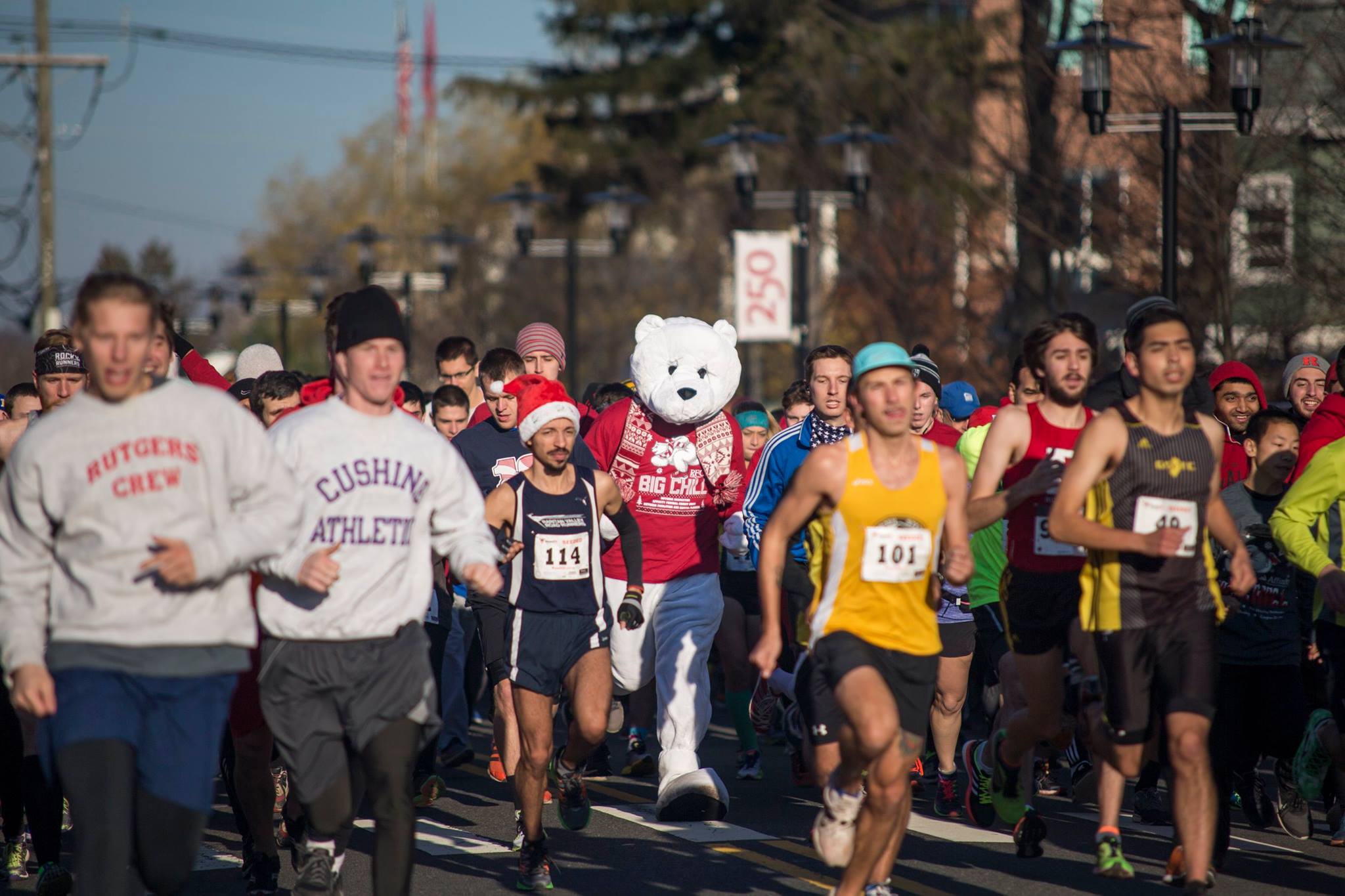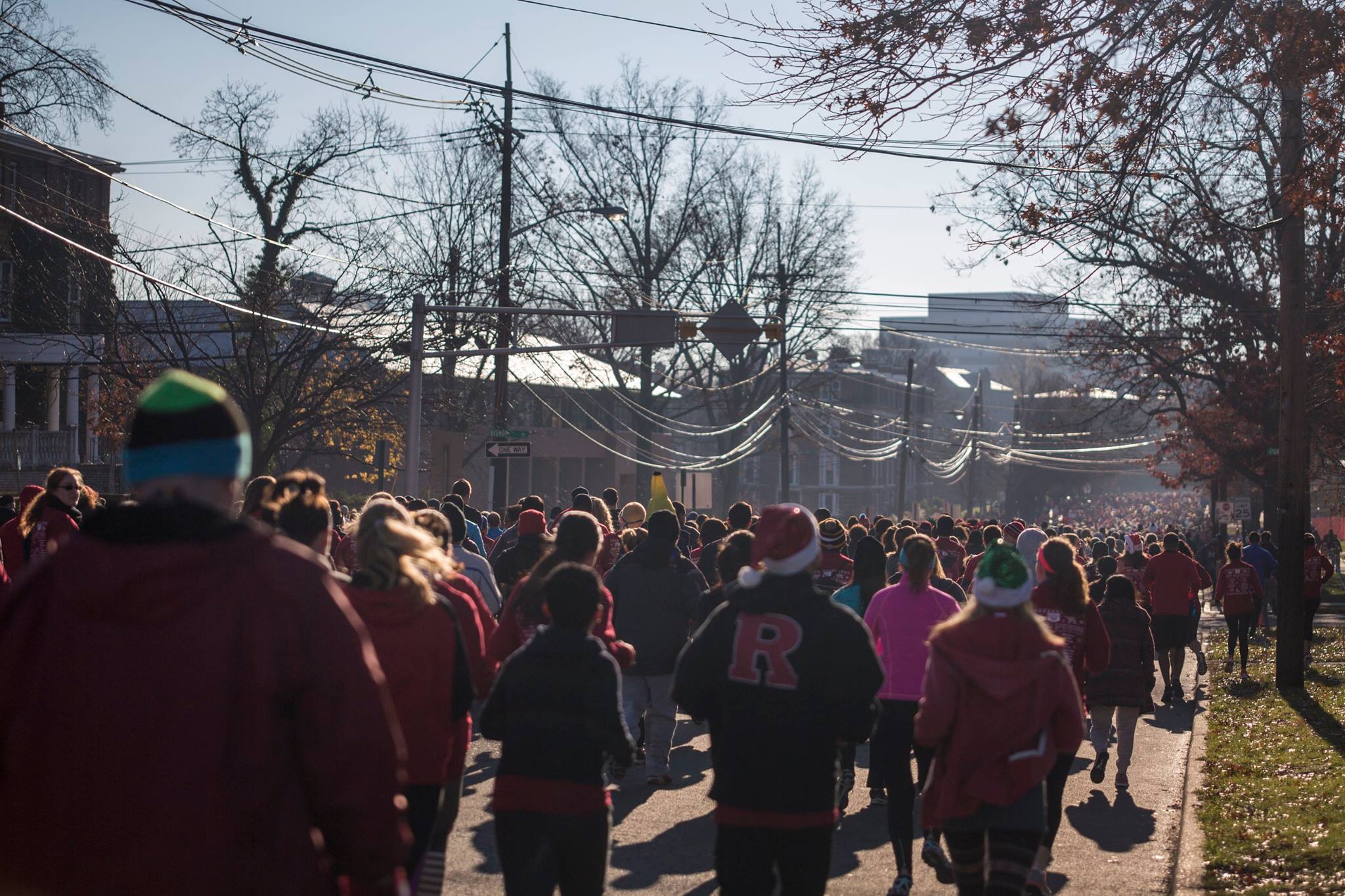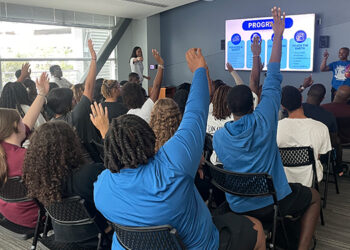What started as an idea to help promote healthy lifestyles on campus and give back to the community has morphed into the largest 5K in New Jersey. Each winter, Rutgers University Recreation hosts the Big Chill Charity 5K. The event started in 2003 with 1,000 participants. Over a decade later, the event draws more than 9,000 runners.
“We wanted to promote a lifelong commitment to wellness,” said Marian Kapp, the assistant director of marketing and communications at the university. “We also wanted to create something that was affordable to students because a lot of the 5K’s have a race fee.”
In order to participate in the Big Chill 5K, no entry fee is required. Participants simply have to bring a new toy that will be wrapped and donated to one of over 10 charities around the state. “We also wanted to do something for the community, so the founder of the event thought of the idea to start a charity race,” explained Kapp. “Instead of the race fee, it is required to provide a toy. Over the years, the community has gotten involved, we have a lot of repeat racers. The popularity of it has grown so much.”
Of course preparing to host an event of this size is no easy task. According to Kapp it takes a lot of collaboration. “There are definitely a lot of logistics involved,” she added. “We have to get the city of New Brunswick involved because we need to get permits. We meet with the University Police. Then we have several meetings with different departments to discuss how to promote it.”
Kapp explained since the event has grown so significantly over the years, there isn’t a tremendous amount of promotion and marketing needed, however they still try to reach out to new students and community members. “We market within the university,” said Kapp. “Luckily the university is very big so we have a community of about 40,000 students and 14,000 faculty and staff. Then we also send out a press release letting the local media know about it as well.”
While removing a race fee is great for students, it does pose its challenges in terms of fundraising for the event. Kapp explained as the event grows, so do the difficulties of managing the budget. The cost of providing 1,000 t-shirts is significantly less than providing t-shirts to 9,000 participants. “Because we are not charging a race fee, the biggest challenge is trying to obtain funding for it,” she said. “We solicit businesses for sponsorships. So we run the event via sponsorships and any type of donation.”
Hosting an event like this is a great way to promote healthy habits, get students moving, engage with the community and spark excitement. Popular events can include a Turkey Trot before or after Thanksgiving break or an Ugly Sweater Run before Christmas. However, when starting an event like a 5K, Kapp advises not to be discouraged early on.
“Know that you are going to start small so don’t get discouraged if you don’t have a big following,” added Kapp. “We have been doing this for over 10 years and we have been seeing the big numbers for only the last five or six years, so don’t get discouraged by starting off with a smaller race.”














